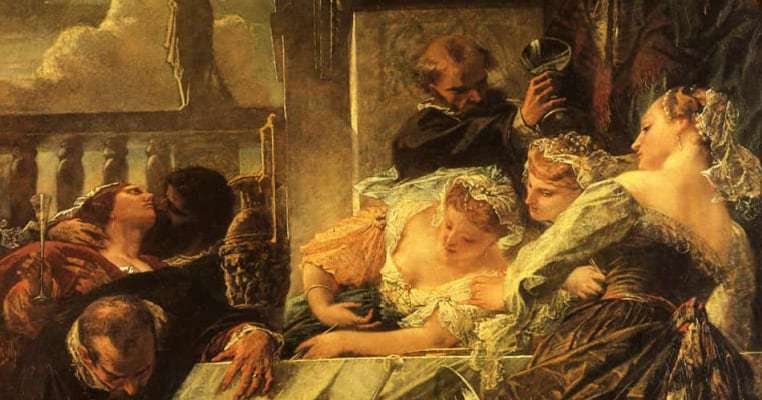Of the many ways to shuffle off the mortal coil, death from laughter is probably among the better way to go, and if it was ever offered as an option, odds are that many would prefer to spend their last moments on earth laughing. History records numerous instances in which people laughed so hard that they ended up dying as a result.
Following are ten examples of such people, who ended up laughing themselves to death.
An Indiana Farmer Died Laughing at a Joke
Laurel, Indiana, is a small farming community in Laurel Township, Franklin County, IN. Its population was 512 in the 2010 census, and is estimated today to have dipped slightly to about 500 people. It had always been a small community ever since its founding 1836, and its population has oscillated over the years between about 500 in the 1860 census, and a peak of 848 people in 1960.
In other words, Laurel is not the kind of place where a whole lot happens, or where there is an overabundance of excitement coming its residents’ way. In that kind of locale, a good joke – or probably any joke for that matter – goes a long way. One joke did just that in 1893, when it caused a Laurel farmer named Wesley Parsons to keel over, kick the bucket, and buy the farm from laughing too hard.

Parsons was shooting the breeze with some friends, when he heard a joke that struck him as so hilarious that he started laughing hysterically. And he went right on laughing, and laughing, and laughing some more. There is an old saw about laughter being the best medicine, but that certainly did not prove to be the case for Parsons, who was killed by the aftereffects of a fit of uncontrollable laughter.
As a contemporary newspaper described what happened: “Wesley Parsons, an aged and well-known farmer died at Laurel, Ind., under peculiar circumstances. While joking with friends he was seized with a spell of laughing, being unable to stop. He laughed for nearly an hour, when he began hiccoughing, and two hours later he died from exhaustion.” Unfortunately, history does not record the joke that was so funny that it caused the unfortunate Mr. Parsons to laugh himself to death.

